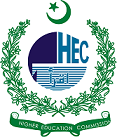Revealing the Economic Consequences of Prosecution Failures within Pakistan's Criminal Justice Systems: A Focus on Ethical Considerations, with Comparative Insights from Norway
DOI:
https://doi.org/10.58932/MULE0022Keywords:
Criminal Justice System, Unethical Practices, Current Infrastructure, ImplementationAbstract
A criminal justice system always desires to discouraging criminality, upholding collective control, and both punishing and restoring individuals who commit criminalities. Nevertheless, the weaknesses in this system, which includes ethnic and socioeconomic unfairness, can dent this classic of fairness. The questions that what problems the police, prosecutors, judiciary etc. are facing and how these glitches may be resolute. There are different hitches with police (investigator officers) public prosecutors, judiciary and prison in the country especially in Punjab, such as political and other pressure, their limited powers for proceeding in cases, the discretion they workout, engagement of private councils by the complainants, the disciplinary thoughts that outlines many of them observes, their un-accountability, and administrative indolence within their offices. The main problems inter alia are frequent transfers, the improbability of their roles, inadequate ability to dig out the evidences of the cases, poor assistance to the courts, unwanted delays in decisions, unfriendly attitude and behavior of officers of polices/ prison and lengthy proceedings which are question marks. This paper provides an overview of existing Criminal Justice System in Punjab/ Pakistan, the details of its key features along with different unethical practices existing in each aspect and ways to counter them. This paper narrates different training programs conducted by United Nations Office of Drugs and Crime in Pakistan with prosecution and police department, which may be replicated throughout the Country for achieving maximum results. This paper also shares certain features of the Norwegian criminal justice system highlighting the reasons of this system being best in the world according to WJP rule of law index. In conclusion, this paper shares multiple recommendations, which may provide basis of bringing positive change in the current justice system of the Country.
References
Aaron, D. (2023). I’ve Prosecuted National Security Cases. It Can Take Time to Get Them Right. https://www.justsecurity.org/86050/ive-prosecuted-national-security-cases-it-can-take-time-to-get-them-right/
Ahmad, D. S. ., Ahmad, D. A. ., Shair, W. ., & Bhatti, M. A. A. (2022). Unlocking Pakistan’s Youth Potential: A Comprehensive Analysis of Youth Development Indices and Strategic Alignment with the UN Sustainable Development Goals. Journal of Professional Research in Social Sciences, 9(2), 80–95.
Adil, K. (2019). Criminal justice system of Pakistan. Research Society of International Law, 2. https://rsilpak.org/2019/the-criminal-justice-system-ofpakistan-a-brief-overview/
Brill, H. W. (2009). The Arkansas Code of Judicial Conduct of 2009. Ark. L. Notes, 2009, 1-11. https://www.unodc.org/ji/en/resdb/data/usa/arkansas_code_of_judicial_conduct.html
Bhatti H. (2023) Mukhtar Mai rape case: SC adjourns review petition after suspects show up without legal counsel. https://www.dawn.com/news/1467962
Butt, Junaid. (2024). A Comparative Study of Post-Conviction Bail and Eligibility Criteria in Contemporary International Relations. Pakistan Law Journal (PLJ). https://www.researchgate.net/publication/379484059_A_Comparative_Study_of_Post-
Conviction_Bail_and_Eligibility_Criteria_in_Contemporary_International_Relations_Pakistan_Law_Journal_PLJ
Dandurand, Y. (2014, December). Criminal justice reform and the system’s efficiency. In Criminal Law Forum (Vol. 25, No. 3, pp. 383-440). Dordrecht: Springer Netherlands. www.doi.org/10.1007/s10609-014-9235-y
Imam, M. A., Ahmad, S., Bhatti, M. A. A., & Afzal, M. (2023). Contextualizing Research Approaches: The Role of Western and Islamic Philosophies in Shaping Methodology and Knowledge Creation. Al-Irfan, 8(16), 69-90.
Ullah, F., Hussain, S., Alam, H., & Akhunzada, Z. U. (2016). Factors influencing police image in public (A study of university students perception in KPK Pakistan). Pakistan Journal of Criminology, 8(3), 134. http://www.pjcriminology.com/wp-content/uploads/2019/01/9-5.pdf
del Río Olvera, F. J., Rodríguez-Mora, Á., Senín-Calderón, C., & Rodríguez-Testal, J. F. (2022). The first session is the one that counts: An exploratory study of therapeutic alliance. Frontiers in Psychology, 13, 1016963.
https://www.firststepalliance.org/post/norway-prison-system-lessons
Holden, L. (2019). Women judges in Pakistan. International Journal of the Legal Profession, 26(1), 89-104.
Dammer, H. R., Reichel, P., & He, N. (2014). Comparing crime and justice. Handbook of Transnational Crime and Justice, 2nd Edition. Los Angeles, CA: Sage, 23-46.
https://tribune.com.pk/story/2283275/the-legal-profession-conduct-and-justice
https://www.dawn.com/news/1597721
Johnson, V. (2024). Whom Do Prosecutors Protect?. Georgetown University Law Center Research Paper No. Forthcoming., Boston University Law Review, 104(2). https://www.bu.edu/bulawreview/files/2024/04/JOHNSON.pdf
Kamran, T. (2019). The making of a minority: Ahmadi exclusion through constitutional amendments, 1974. Pakistan Journal of Historical Studies, 4(1), 55-84.
Khan, M. M. (2010). Prison System in Pakistan. Pakistan Journal of Criminology, 2(3), 35-50.
Jehle, J. M., Wade, M., & Jehle, J. M. (2006). The function of public prosecution within the criminal justice system: Aim, approach and outcome of a European comparative study. Coping with overloaded criminal justice systems: the rise of prosecutorial power across Europe, 3-25.
https://ppd.punjab.gov.pk/introductio
Rizvi, I.(2022) why do people in Pakistan avoid seeking court remedies? failure of Pakistan’s judiciary?. Courting the Law. https://courtingthelaw.com/2022/06/18/commentary/guest-columnists/why-do-people-in-pakistan-avoid-seeking-court-remedies-failure-of-pakistans-judiciary/
Souryal, S. S. (2023). The Importance of Ethics in Criminal Justice. In M. Braswell, R. Fuller, & J. Lozada (Eds.), The Interaction Between Ethics and the Criminal Justice System (pp. 01-16). Sage Publications. https://www.sagepub.com/sites/default/files/upm-binaries/46945_CH_1.pdf
Tanvir, M, H. (2021) Pakistan’s Judiciary. Paradigm Shift. https://www.paradigmshift.com.pk/justice-system-of-pakistan/
UNODC. (2020). General issues. Public prosecutors as the 'gate keepers' of criminal justice https://www.unodc.org/e4j/en/crime-prevention-criminal-justice/module-14/key-issues/2--general-issues--public-prosecutors-as-the-gate-keepers-of-criminal-justice.html
UNODC. https://www.unodc.org/pakistan/en/consultative-workshop-on-police-prosecutors-cooperation.html
Volkov, V., & Dzmitryieva, A. (2015). Recruitment patterns, gender, and professional subcultures of the judiciary in Russia. International Journal of the Legal Profession, 22(2), 166-192.
WJP Rule of law index. https://worldjusticeproject.org/rule-of-law-index/
Zhang, Y. (2017). Pakistan, Corrections in. The Encyclopedia of Corrections, 1-9. https://globcci.org/wp-content/uploads/2021/07/Corrections-in-Pakistan-2017.pdf
Zia, A. (2020) Problems with prosecution. The News on Sunday. https://www.thenews.com.pk/tns/detail/754133-problems-with-prosecution











